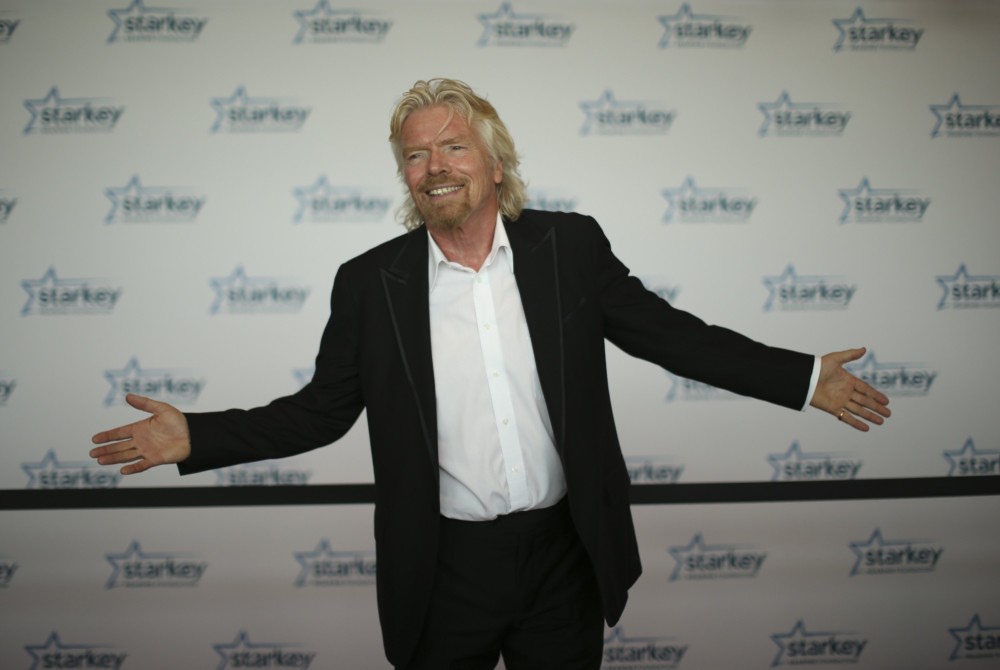By Rachel Lerman
The Seattle Times
WWR Article Summary (tl;dr) Great Q&A with Richard Branson on why it’s a great time to be an entrepreneur.
The Seattle Times
Richard Branson, founder of the Virgin Group and one of the most-recognized entrepreneurs in the world, has been in the business of starting businesses for 50 years.
Virgin Group encompasses ventures from a varied group of industries — records, airlines, even space travel.
Business is all about making a difference in people’s lives, Branson told a crowd of a couple hundred people Tuesday at a panel event in downtown Seattle, part of the entrepreneur’s “Business Is an Adventure” series. The event was held a day after Branson arrived in Seattle to celebrate the launch of a new Virgin Atlantic route between Seattle and London.
The business magnate sat down with The Seattle Times on Monday after his Virgin Atlantic flight from London. (This Q&A has been edited for length and clarity.)
Q: If you were to start out today and build your brand would you have done anything differently? Do you think it’s different today?
A: I think young entrepreneurs today have an advantage that I didn’t have 50 years ago. The word “entrepreneur” is now known, whereas 50 years ago, there were hardly any entrepreneurs around. There’s money they can tap into and entrepreneurism is not a dirty word. It sounds bizarre, but if someone 50 years ago wanted to become an entrepreneur, their parents would be upset they weren’t becoming a doctor, or a lawyer or an accountant. Whereas today, I think most parents would be quite pleased and proud of their kids that they wanted to create businesses that make a difference in people’s lives.
In some ways it’s easier today, in some ways it’s more difficult because a lot of the great ideas have already been done. So it means the challenge is that much more difficult. When I started, the airline business was absolutely dreadful, so it was easy for us to come in and shake it up. When we started the train business, trains were absolutely dreadful and we came in and made it a lot better.
There is still lots of opportunity for people to start new businesses.
Q: You have a lot of businesses in different industries. Do you see much of a difference between the products, or is it all about building a business?
A: It’s all about looking at a sector and thinking, “Can we come in and make a real difference in people’s lives in that particular sector and do it a lot better than it’s been done by a lot of people?” If you can do that, then you have a really good business.
Q: What’s the next industry that’s dreadful and needs to change?
A: I think energy is something that everybody needs, it’s what makes the world go round. Clean energy is what the world needs, and there’s enormous amounts of opportunities in the clean-energy sector. Even with a president who doesn’t sound like he’s going to help very much.
Q: What’s your philosophy on how much of a company entrepreneurs should give to investors or control themselves? What should they keep in mind?
A: If there is a way of launching your business and keeping control by self-funding it in some way. I’m lucky enough to own 100 percent of Virgin Group and have done so for 50 years, which means I can make difficult decisions — decisions like going into the space business, which outside investors would never have let me do.
I managed to self-fund our first business by literally selling products in advance. Like the magazines that we created. We’d sell advertising in advance for our magazine, and so on. That’s not always easy to do, and sometimes for your first business you might have to give up 25 percent, maybe even as much as 49 percent. But try not to give up control if you can avoid it.
And then maybe if you make money out of your first business, the next time around you can try to keep complete control.
Q: What’s different about starting your new businesses now versus 50 years ago?
A: The principal difference is you have this global internet, which can help you in advertising. There was never internet when I started, so I had to jump in balloons and fly around the world, and jump off mountains and literally, you know, make every attempt to kill myself in order to get the brand well-known. Today it’s not quite as necessary as it was then.
Q: What interests you about space? How did that start out for you?
A: The moon landing. And why can’t we all go to space one day? And the fact that the governments really weren’t interested in you or I going to space. And a sort of “screw it, let’s do it” attitude that said, if they won’t let us come on their spacecraft, we better build our own spacecraft. And realizing that 70 percent of people would love to go to space, would love to become astronauts if we could get them a return ticket and if we could get the price at the right level.
Once we started embarking on that, then we also realized that there were 4.5 billion people who weren’t connected in the world and that we could put up big arrays of satellites and connect those people.
Q: Where’s your favorite place to travel?
A: Home. I’m lucky, I live on a beautiful island in the Caribbean that I’ve had since I was 28. It’s the most beautiful place in the world, with pristine lovely coral all around it and beautiful species on our island. We’re in a little bit of heaven there. Nearly as nice as Seattle.














































































































































































































































































































































































